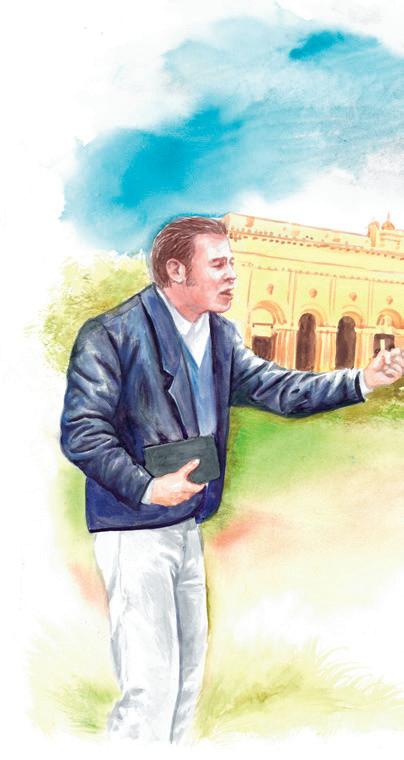
3 minute read
International GOD’S TWEETS
from 790_English
GOD’S TWEETS
Wenceslao Calvo (*)
Advertisement
Now that it is so common to tweet, we should remember the old saying that there is nothing new under the sun. Although current generations boast about having come up withnew things, the truth is that many of them are but remakes.
Many centuries ago, when people of the time thought that there had come up with things that never existed before, someone wrote, “Is there any thing whereof it may be said, See, this is new? it hath been already of old time, which was before us.” (Ecclesiastes 1:10)
In this statement, two things stand out: first, the humbleness in recognizing that new things are not necessarily superior to past things; and second, the wisdom in realizing that old things can be as valuable as new things.
As regards tweets, we may think we are dealing with a totally unprecedented phenomenon in human history. Some may believe that these 280-character messages that fill no more than three lines on an A4 sheet are an absolute innovation. Nothing could be further from the truth.
Tweets have existed for several thousand years, with cultures using them to spread their thinking. And that is why, nowadays, we have collections of short sayings coming from Mesopotamia and Egypt, in which they even dealt with different life aspects.
The idea was that people did not need to read large books to understand certain truths, so they summed up important thoughts in a few meaningful words.
The Bible also has its own collection of tweets, which can be called God’s tweets, as He is their ultimate author.

the second idea completes the first one; and antithetical, when the second idea opposes the first one.
Although there were no spaceships or Internet at the time, the relevance of Proverbs remains intact throughout time, as the important life aspects of yore are still the important life aspects of today.
This collection of God’s tweets, which is Proverbs, belongs to the wise literature of the Bible, along with Ecclesiastes and Job. The difference is that, while Ecclesiastes wonders what life was made for and Job wonders why life was made, Proverbs wonders how to live that life.
Another difference between Proverbs and the other two books is that, while they sometimes contain unsolved mysteries regarding certain questions about life, in Proverbs there is no mystery, as it gives practical answers to practical questions regarding family, friends, loans, finances, sexuality, work, words, etc.—that is, timeless and universal matters.
But those practical questions are not answered from a secularist perspective, which is prone to reducing everything to its usefulness and convenience. They are answered from a higher perspective, because God is the cornerstone of the moral everyday universe we live in.
There is Proverbs tweet’ that we could call the tweet par excellence, the axis and core of all others: “The fear of the Lord is the beginning of knowledge” (Proverbs 1:7).
I can testify that God used this very tweet to speak to me for the first time, when in the midst of confusion and downfall, I was looking for the true path in life. Many people have been awakened from a deadly somnolence by outstanding passages from the gospels or other parts of the New Testament.
They are three thousand years old, but they are as relevant and applicable as if they had been written today; the difference, with respect to the modern ones, is that they contain unequaled depth, wisdom and significance.
This collection of God’s tweets is in the book of Proverbs, in chapters 10 to 29, in which with the literary resource of parallelism, a succession of thoughts on vital issues is offered to the reader.
The parallelism can be: complementary, when the second idea strengthens the first one; climactic, when
You would think that this 41-character sentence is not likely to have much effect on a twenty-year-old young man living in the early 21st century. And yet, this tweet from God touches the heart.
Although being wise comes from having a lot of knowledge, information, avant-garde readings, etc., that tweet sheds light on the root and origin of true science and true knowledge, which is the fear of God.










